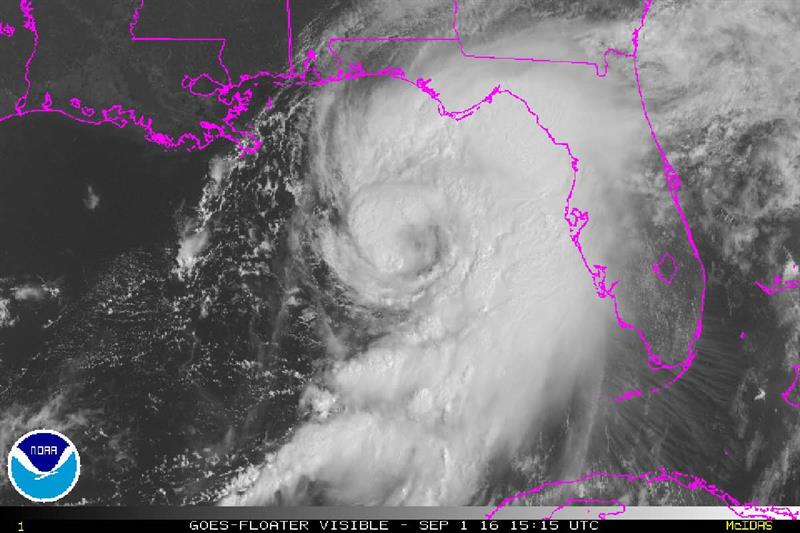Years have passed since a hurricane reached the Florida’s Gulf, which has led residents to make emergency preparations for when Hurricane Hermine hits the southern state on Friday.
With wind gusts surpassing the 75mph mark, Floridians expect Hurricane Hermine to make landfall in Friday’s first hours. The last hurricane to hit Florida’s Gulf was Wilma on 2005. Hermine represents a significant threat to locals and tourists alike. Cities in Florida are already reporting floods and power shortages due to the high tides caused by Hermine.

Preparing for the storm
Governor Rick Scott assured that the inflow of new people to the state over the past years shows that many of the newer residents have not faced a hurricane in their lives, which could lead to more catastrophic losses from the lack of experience in emergency procedures.
Hermine has already reached half a million Floridians, as Gov. Scott declared a state of emergency with several mandatory evacuation procedures throughout the state. Schools have closed, and shelters have been prepared for providing protection to those whose homes have been deemed inhabitable by the hurricane.

The hurricane will be categorized as a tropical storm, as it will ravage almost everything that is not secured to the ground or placed at a decent height to avoid flooding. Evacuation procedures started on Thursday, as most Floridians are worried by flooding, which can trap people in their homes and wash away debris and vehicles.
Weather analysts believe that floods could reach 8 feet high, including severe inundations that could potentially be lethal for anyone caught unwary. Trees and power lines are expected to fall throughout the entire state, especially in coastal cities near the Gulf.
A tornado warning was also issued Thursday afternoon in the inner counties of Florida, including the cities of Daytona Beach, Gainesville, Jacksonville, Melbourne, Ocala, Orlando, Tallahassee, and Tampa.
Florida is not a constant victim of hurricanes
Emergency officials are trying to convince new Floridians that hurricanes are not to be messed around with. Because the state has not seen a hurricane in over a decade, there is no palpable evidence of the many harms that it can cause to a low-altitude state such as Florida, which is almost surrounded by coastal waters.
Hurricane Wilma caused about $20 billion in damages, including the deaths of 35 people, added to 26 indirect fatalities. Its winds reached an astounding rate of 1-minute sustaining 120mph. Several cities were out of power for weeks as the waters severely damaged the state’s power grids.
Wilma made ten tornadoes appear throughout the whole state. Wilma is considered the costliest hurricane in Florida since Hurricane Andrew, which occurred in 1992. Trees were torn out of their roots and sent flying over low-land areas. Complete residences were destroyed, including agricultural localities, mobile homes, and buildings.
To prepare for a hurricane one must first know if it is safe to stay at home and the place where you’ll be when the storm makes landfall. Packing emergency supplies is also important, such as batteries, flashlights, can openers, cash and credit cards, a weather radio, and a first-aid kit. Keeping in touch with friends, family members, and authorities heightens the chance of survival.
Source: USA Today
